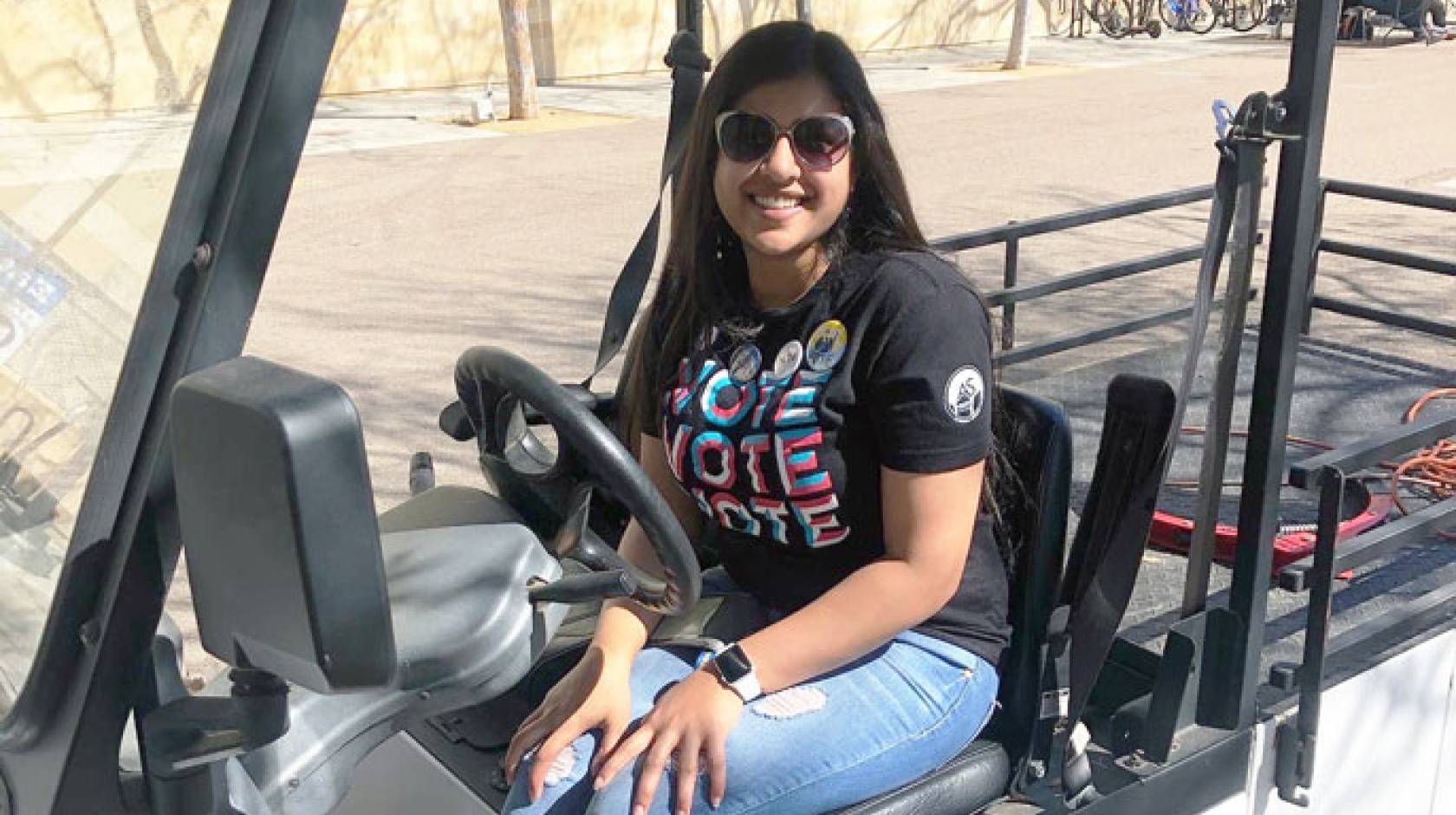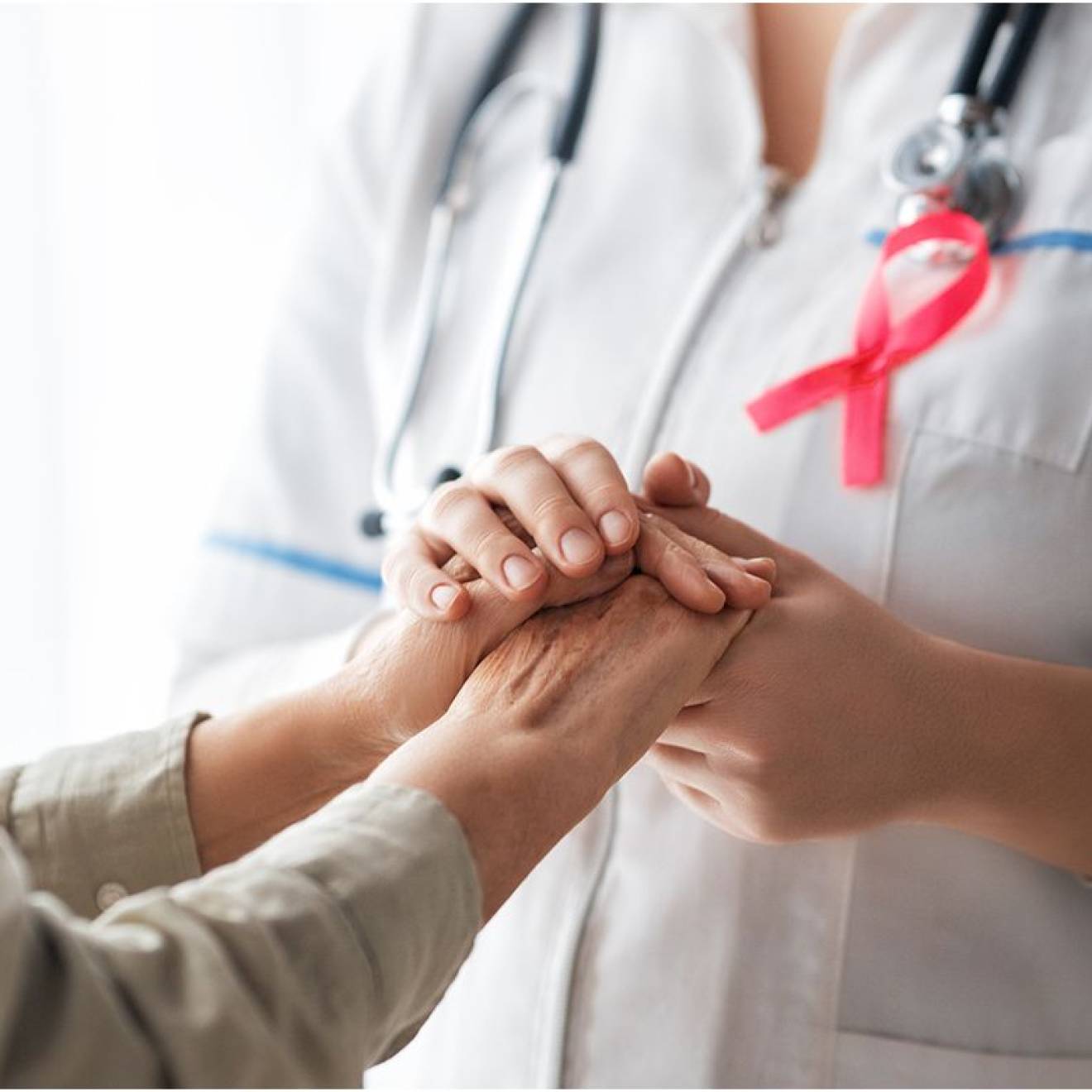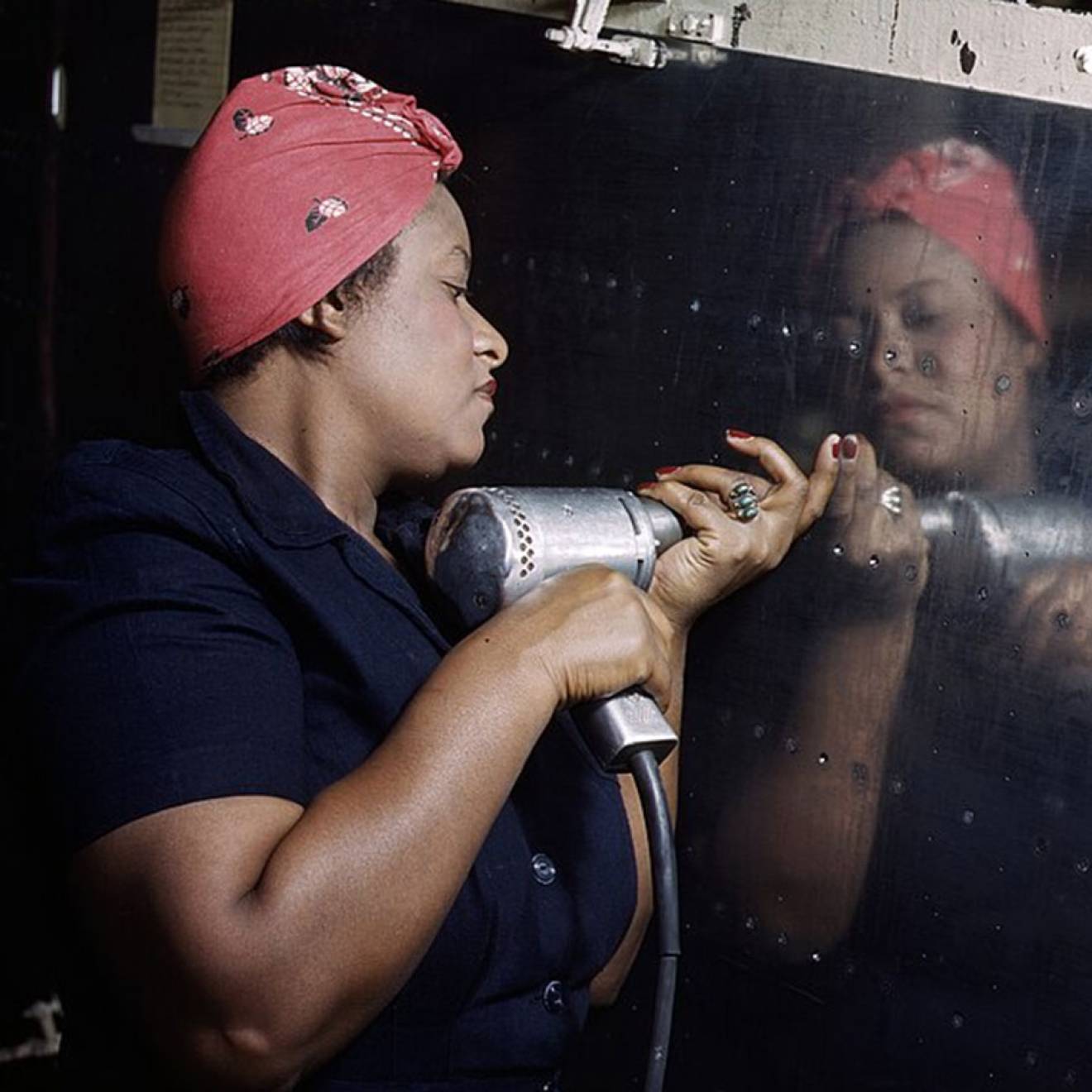Nicole Freeling, UC Newsroom

Young adults are geared up and ready to vote this fall, driven by concerns over racial justice and the pandemic, according to findings from a new poll conducted by YouGov for the University of California.
Six weeks ahead of the presidential election, a survey of California youth aged 18-24 found the state’s newest voters are paying close attention to the issues, and nearly 60 percent plan to vote early, most of them by mail.
The poll captured attitudes toward voting and current events among young adults. It builds on findings of an earlier poll, released this spring, with new insights into how COVID-19 and other issues are influencing opinions and behavior, including plans to vote.
The poll found that current events — including protests over racial injustice, the coronavirus and the changing makeup of the Supreme Court — are driving up enthusiasm to vote, with almost half citing at least one of these factors as making them more likely cast a ballot.
And despite the upheaval caused by the pandemic, large numbers of California youth report being registered well ahead of the October 19 deadline for online registration. In addition, the majority of young voters are aware of and plan to take advantage of vote-by-mail and early voting options designed to make it easier to vote safely during the pandemic.
The poll also found that — contrary to public perceptions — young adults say they are taking the health crisis seriously, agree with rules requiring face masks, and support a cautious approach to lifting restrictions and returning to in-person instruction.

For many students, politics has become personal
The overlapping crises of 2020 — from the pandemic to protests over police brutality to the wildfires ravaging California — have brought home the importance of voting to an age group that hasn’t always readily made the connection between politics and their day-to-day lives, said Alisha Saxena, a political science major at UC San Diego who has been active in both student government and campus get-out-the-vote efforts.
“Usually I have to convince students not to willingly give away their right to guide the direction of their city, state and nation,” said Saxena, who serves as vice president of external affairs at Associated Students of UC San Diego. “But now, whether it’s immigration, health insecurities, economic insecurities or basic needs, at least one of those facets is affecting a majority of our students, so it’s a lot easier to convince them to vote.”
These are issues, she said, that run all the way down the ballot to races where individual votes carry an enormous sway.
“We are really seeing clearly right how policies at every level of government — whether that’s school board, city council, state leadership or national government, directly affect our lives and those of the people we care about,” she said. “We are telling people to look down the ballot at every single person in every office to see if they are aligned with your views and desires.”

Youth have become leading voices on the issues of the day

Courtesy Arden Dressner Levy
Far from being apathetic, the majority of young adults reported that they regularly follow issues of government and public policy as well as the presidential campaign.
In the past few years, youth have taken center stage on issues from the Black Lives Matter protests to gun violence and action on climate that’s primed them for seizing their power as new voters, said Arden Dressner Levy, an international development major at UCLA and leader with BruinsVote, a nonpartisan effort to get students to the polls.
The pandemic has also created more space in students’ busy lives to follow current events and get educated on local issues, Levy said.
Despite students being unable to gather in person, she said, “We’ve seen a surge in people volunteering, trying to get their classmates registered, signing up to be poll workers,” she said.
“Young people are really seeing how, especially at the local level, your vote is really powerful and can change the course of history,” Levy said.
A third of eligible voters are under 25
A surge in turnout among young voters could be a game-changer for both state and national politics.
The youth vote now comprises the largest and most ethnically diverse part of the electorate, amounting to more than a third of all eligible voters in the U.S.
In years past, young voters turned out in much lower numbers than older voters. Yet 2018 saw a tremendous surge in student voting, a trend that could continue in this presidential election year.
More than 70 percent of young adults UC surveyed in early September reported they were already registered to vote. By comparison, only 60 percent of eligible young voters were registered in 2018, according to Lizette Mara, California deputy secretary of state for operations.
And there’s still room to grow: Voters have until October 19 to register online but can actually register right up to Election Day using conditional registration.
Young voters aren’t waiting to make their voice heard
“This is really important, and I don’t want to procrastinate,” said Saxena. She personally intends to vote by mail, and to complete and return her ballot as soon as it arrives in early October.
Young people are invested in this election, but they want to participate in a way that safeguards both their own health and those of workers at the polls, she said.
“Voting by mail is also much more convenient. The mask gets warm and uncomfortable when you’re waiting in line. I also heard how chaotic some of the polling locations were during the primary, and I want to avoid that drama.”
UC campuses have extensive outreach efforts underway to encourage students to register and vote, and to be sure they understand their options for voting by mail or in person. Students and staff are also sharing resources, such as the California ballot tracker that lets voters see when their vote’s been counted.
Efforts like these appear to be paying off: Large majorities of poll respondents reported being aware of the vote-by-mail process, and seven out of 10 were aware that California is sending all voters optional mail-in ballots. Most (60 percent) said they are confident that their vote will be counted.
Young adults are worried about falling sick
Contrary to the image of youth as flouting public health guidelines, the overwhelming number of young adults polled reported taking health precautions seriously, with more than 80 percent of California youth saying they strictly adhere to social distancing guidelines.
Many report being personally affected by the pandemic.
Nearly a third of respondents said that a family member or close friend had tested positive for COVID-19, while more than 40 percent reported that a family member or close friend had experienced reduced work hours due to the pandemic. One in five have experienced a layoff or reduced work hours themselves.

They are cautious in their approach to re-opening — and that extends to higher education
Two out of three young people expressed concern about coronavirus restrictions being lifted too quickly. In fact, young people were three times as likely to worry about officials moving too quickly than too slowly in reopening.
Much as young adults might yearn for a return to in-person classes and the typical college experience, a significant number are concerned about physically reopening campuses. More than half support keeping instruction fully or mostly online; compared to just over 30 percent who support mostly or fully in-person.
Racial injustice has eclipsed coronavirus as highest issue of concern
More than 70 percent of young people support or approve of non-violent protests and demonstrations in response to the deaths of Black Americans during encounters with police. A similar percentage report following the news about the protests very or somewhat closely.
In fact, most young adults identified racism and racial justice as the most important issue facing the country today. The issue outranked the COVID-19 pandemic, jobs and the economy, and health care by eight or more percentage points among those surveyed.

All these issues are concerns that hit close to home for many young people and their communities, UCLA student Levy said.
And they are leading young people — an age group that has historically turned out in low numbers — to understand the stakes on November 3.
“Young people are the largest and most diverse generation alive right now. We are going to be the people whose futures are affected by the decisions of local, state and national leaders,” she said. “And if the pandemic, social justice issues, wildfires and climate change have shown us anything, it’s that a lot needs to change.

